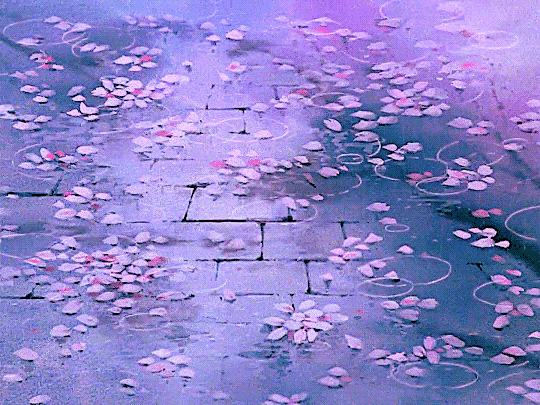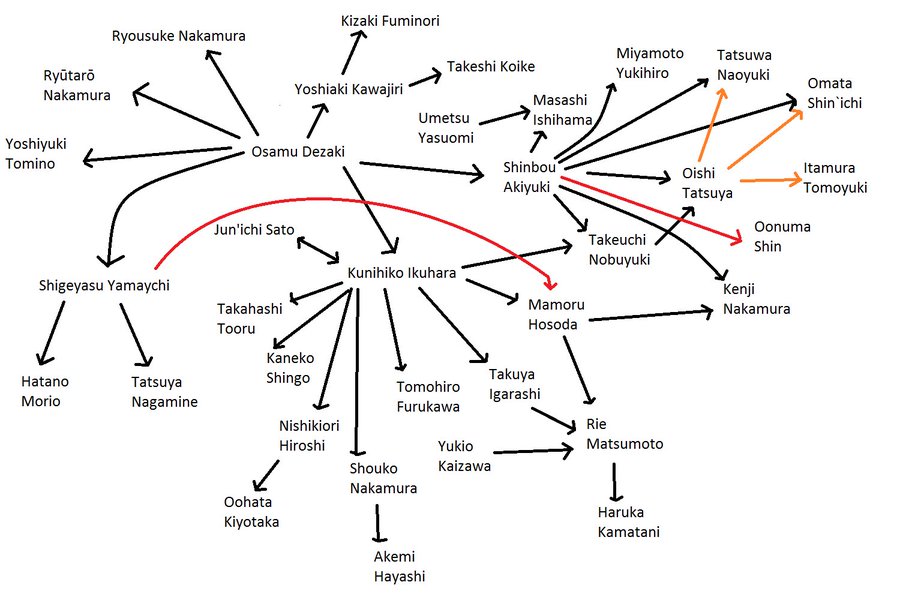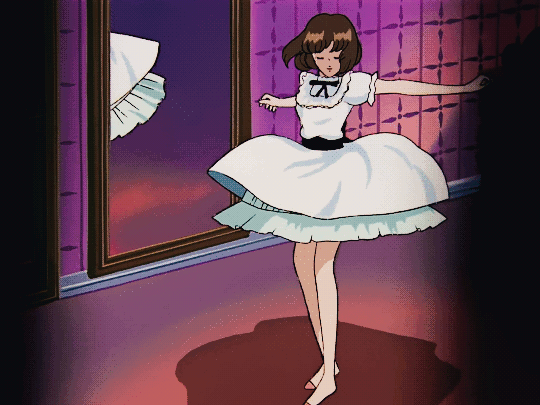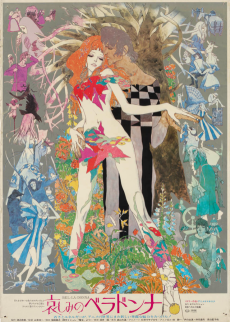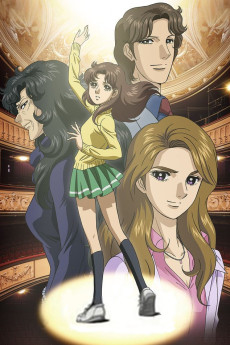ONII-SAMA E...
STATUS
COMPLETE
EPISODES
39
RELEASE
May 31, 1992
LENGTH
25 min
DESCRIPTION
Before leaving her cram school, Nanako Misonō asks one of the teachers if they can become pen-pals. The teacher, Takehiko Henmi, is reluctant at first, but eventually accepts the offer. The story is narrated through the letters sent from Nanako as she enters Seiran, a renowned private high school for girls only. There she encounters many difficulties as an ordinary middle-class girl invited to the prestigious Sorority, the most traditional and sophisticated club on campus..
(Source: AnimeNewsNetwork)
CAST
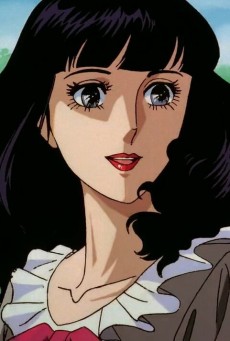
Mariko Shinobu

Sakiko Tamagawa
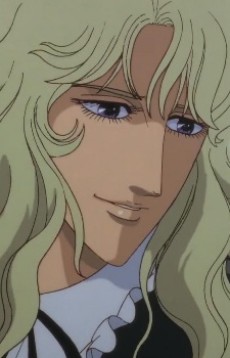
Rei Asaka
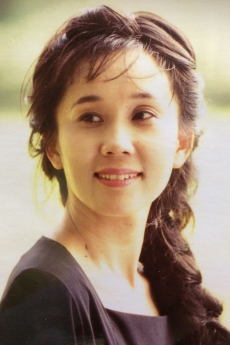
Sumi Shimamoto
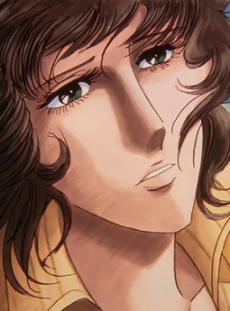
Kaoru Orihara

Keiko Toda
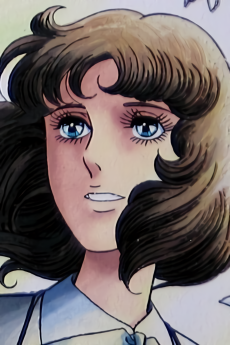
Nanako Misonoo

Hiroko Kasahara
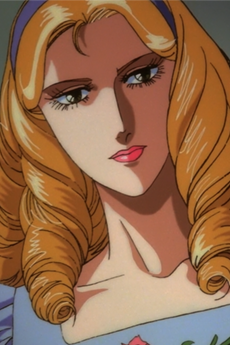
Fukiko Ichinomiya
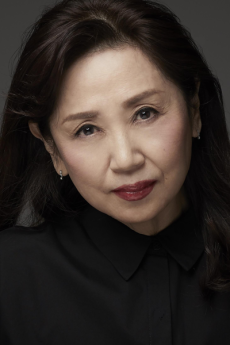
Mami Koyama
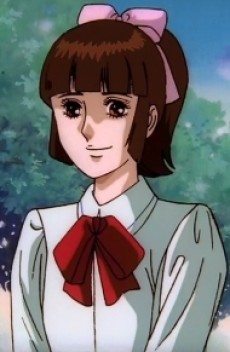
Tomoko Arikura

Waka Kanda
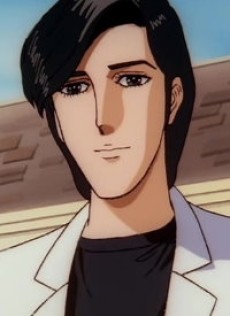
Takashi Ichinomiya

Kenyuu Horiuchi
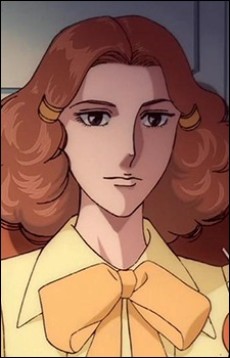
Aya Misaki
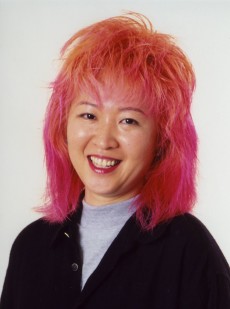
Masako Katsuki

Takehiko Henmi
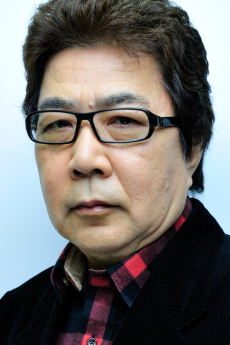
Tesshou Genda
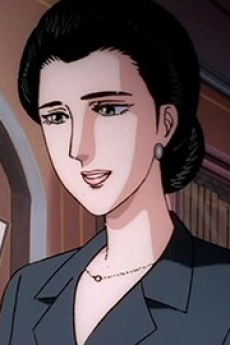
Hisako Shinobu

Rihoko Yoshida
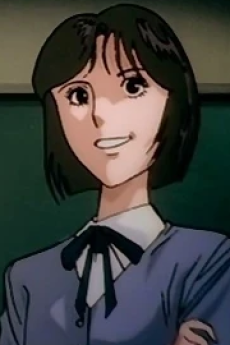
Megumi Furuta
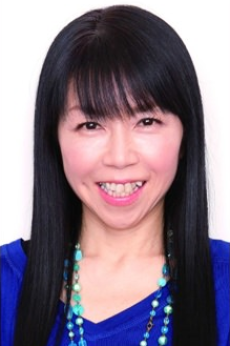
Miki Itou
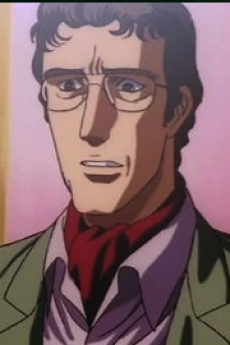
Hikawa Shinobu

Tomomichi Nishimura
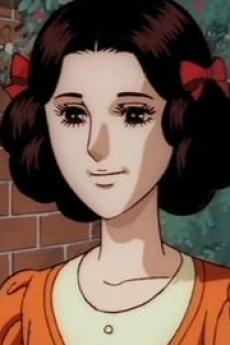
Junko Nakaya

Mayumi Seto
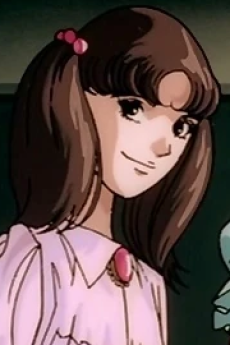
Miyuki Sonobe
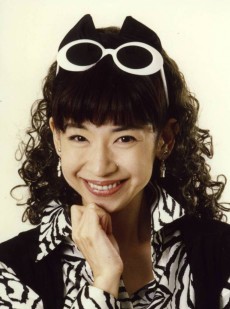
Yumi Takada

Halloween
EPISODES
Dubbed
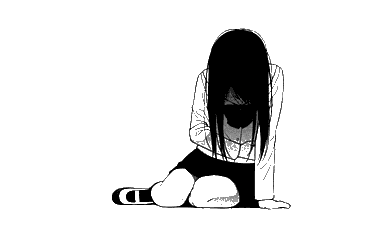
Not available on crunchyroll
RELATED TO ONII-SAMA E...
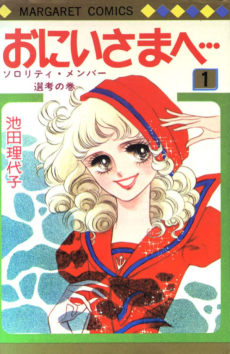 MANGA DramaOnii-sama e...
MANGA DramaOnii-sama e...REVIEWS

Juliko25
83/100A surprisingly refreshing and elegant take on a tired old premise. But its very high on the melodrama.Continue on AniListTell me you've heard this premise before: Normal girl gets accepted into a prestigious school, gets into a clique, but is bullied by both other members of the clique and people outside of it, including a stereotypical alpha bitch who rules the school, and experiences both romance and hardship. A fairly common story that's the focal point of a lot of movies, shows, and books about teenagers aimed at teenagers, and depending on the execution of said story, it can turn out well, or it can turn out really bad and cliche. Thankfully, Dear Brother, or Oniisama e, is the former. Basically, take the premise of Mean Girls, change the setting to an all-girls school in 1970s Japan, amp up the melodrama by making half the characters either kinda psycho, suicidal, or giving them mountains of sad backstories, complete with stuff like divorce, suicide, affairs, and so on, have it be directed by Osamu Dezaki, and have the entire story written by Rose of Versailles creator Riyoko Ikeda, complete with 70s shoujo flair, grace, and style, and you've got Dear Brother in a nutshell. Of course, the premise I mentioned above is really an oversimplification of things.
The story centers on high school girl Nanako Misono, who frequently writes letters to her pen pal, former cram school teacher Takehiko Henmi, who she refers to as her brother. She gets accepted into the prestigious Seiran Girl's Academy and is looking forward to life in high school...but for some reason, she gets recruited into the school's sorority, an elite clique consisting of the school's richest and most talented students, which angers most of Nanako's classmates, who think she somehow must have gotten in through cheating. As a result, bullies try to make Nanako's life a living hell through every cruel deed possible, whether it be rumors, slander, violence, or so on. Her friends do help whenever they can, though even some of Nanako's friends may not have her best interests at heart. But Nanako finds herself caught in a web of deceit, misery, toxic class politics, and jealousy, and even has to contend with secrets that completely shatter her worldview forever, including ones about her own family.
A warning for those wanting to get into the series: Dear Brother tackles a lot of difficult subject matter such as violent bullying, divorce, characters attempting suicide, extramarital affairs, the whole enchilada. Whether the show tackles them with tact, nuance, or the sensitivity they deserve, I'm not the best judge on that one, so I couldn't tell you. If there's one thing I can say about Dear Brother, it is filled to the brim with almost non-stop drama up the wazoo, complete with teenaged angst, girls being absolute bitches to each other, wild catfights, lots of screaming and yelling, and its usage of sensitive subject matter could put it on the level of a soap opera. And yet...having seen the show, here, all of it just works. Dear Brother stands out from others that use the exact same premise in a lot of ways, and it comes with such a style, grace, and elegance that actually helps everything I just mentioned above fit perfectly into place. One of the reasons for this is the fact that Osamu Dezaki directed the anime, and while the show doesn't exactly have the highest budget, Dezaki is famous for always making optimal use of the animation techniques available at the time. He has very specific directorial choices that he's pretty well known for, such as dual screens, repeating certain shots three times at different speeds to stretch certain moments out, and most famously, frequent usage of lush, heavily lined, watercolor still frames to heighten emotions or close off scenes. Plus, the animation itself is surprisingly kinetic, using a lot of frames and with smooth movement and motion from the characters, far more fluid than was present in Rose of Versailles. Dear Brother holds up surprisingly well in terms of the quality of its animation, especially considering this was made in 1992, not too long after Japan's economic bubble popped. I don't have as much to say about the soundtrack, as it's pretty nice in its back and forth usage of elegant classical music, as per the setting, and music box lullabies, though some of the shoujo sound effects are pretty dated at this point.
Of course, you can't simply sell an anime on its animation alone, as you need a well-rounded cast of characters to hold it up, and I'm happy to say Dear Brother really delivers here. Now, usually when I say something is melodramatic, I mean this in a negative way, because drama should be used to flesh out and bring out the best in the characters, not simply be a vehicle for endless angst or rehashing cliches soullessly. I should know, I've done this in plenty of my own fan fics before. All the characters have their own sets of issues to work through, and they don't always tackle them in healthy ways (Which, to the show's credit, it does acknowledge). There's vicious cat fights galore, and sometimes the characters just don't want to talk to each other and resolve their issues (This is pretty prevalent early on with the characters of Mariko and Tomoko). But here's the thing: While all the drama that goes on is definitely over the top, it never borders on cheesy except for several rare occasions. It doesn't try so hard that it just winds up being silly, and instead, its used to flesh out the characters even more as the show goes on. From the main characters to even the side ones who appear later on, all of them are engaging and deep, and it's great to watch them all grow and deal with issues that, while over the top, many teenaged girls have experienced and can relate to. Because of the way the show builds the chemistry between all of its characters and the care that goes into fleshing them out and developing them, all of the over the top drama here actually feels earned, rather than simply feeling forced and shoehorned in just for the sake of it, something that's plagued other media with a similar premise. This is further compounded by the fact that, with the manga only being a paltry three volumes long, and the anime was due to go on for 39 episodes, rather than simply pad out the anime, the production team decided to expand on the characters and backstories that didn't get as much development in the manga. For example, Nanako's friend Tomoko was a minor character in the manga who never got to do much, but in the anime, she's a prominent supporting character who gets a lot of screentime. Fukiko and Rei's past is expanded upon, several sorority members get more to do in the anime, Mariko's arc is more fleshed out, and even Aya and her girl posse get expanded roles.
I personally do like this series a lot, though I wouldn't consider it an all-time favorite. For one, the early parts of the series indulge in the "characters refuse to talk through their issues and keep silent to drag out the conflict" trope that I tend to hate, though I didn't find it nearly as annoying here, and the show does have its fair share of silly moments that really break your suspension of disbelief. I mean, when an older student does a better job at keeping a violent classroom in line than a teacher does, maybe that teacher shouldn't be teaching. Some later parts of the series may not sit well with modern viewers, especially near the finale, and Dezaki's overall involvement may be a double-edged sword for those who aren't huge fans of his style. The reception for his work on the Air and Clannad movies wasn't the best, so his style is pretty love-it-or-hate-it, especially depending on how well you can stomach the dramatic scenes. Even the character designs don't look like your typical anime style, and you can thank Akio Sugino for that one, who was frequent collaborator with Dezaki before the latter's untimely passing.
Bottom line, Dear Brother is definitely a great anime that should be on everyone's radar if you're looking for something that has more meat on its bones than others that have used the same premise, but it's not for everyone. If you don't have a tolerance for bitchfights and melodrama, or can't handle the sensitive subject matter depicted, Dear Brother may be too much for you. Plus, while the series is finally available on Blu-Ray, Discotek Media stated that for some reason, the producers only allowed them to license it for a year, and since the BR came out last year, if you want to own this series, you better get it now before the prices on it start jacking up like crazy. As someone who spent ten years trying to find one movie on DVD at a reasonable price, I can tell you the pain is real. But Dear Brother is a great anime that shouldn't be missed, especially now that it's come back into the limelight thanks to being streamed on RetroCrush.

GeneralMills
80/100emotionally vast and uncompromising in its depiction, Dear Brother presents melodrama at its most captivatingContinue on AniList
This review contains mild thematically contextual spoilers, but reveals no major plot points.

There is a certain romanticism I have for coming-of-age stories that tickle an innate desire to unpack and analyze my own experiences through media entertainment. Perhaps it's because the concept of maturity still feels elusive and grand, even as I wax poetic into adulthood. I’d like to think that I’ve grown quite a bit as a person since my harrowing days of adolescence, but I am always searching for the things I may have overlooked or misunderstood as I cross the various junctures of adulthood. Dear Brother offers something that I am always on the hunt to uncover: a perspective different from my own with transcendental ideas to discern.
It’s in the unabashed emotionally vivid lives of these young women that I found some genuine truths about self-love and life, truths that I wouldn’t have considered if I was the type to linger solely in the admittedly mundane male-hetero perspective I am afforded. So with that said, take everything I say about this series with a grain of salt, and I vehemently encourage you to seek out the viewpoints, experiences, and opinions of women or LGBTQ with this series over my own. Although the events and people of Dear Brother are depicted as high melodrama, these types of experiences are grounded in truth in a way that deserves consideration beyond what I am able to offer.
There’s almost a layer of irony in that the audience that will undoubtedly resonate the most with this series will likely be appalled by an anime titled “Dear Brother”. And frankly, I can’t blame anyone who would turn their nose up at a synopsis centered around a young girl pining “platonically” for her cram school teacher. I am familiar with mangaka Riyoko Ikeda’s more famous works such as Rose of Versailles, but as for Dear Brother I first heard of the series last year when the Blu-ray popped up on Right Stuf, as well as Retro Crush making it more accessible by acquiring it for streaming on their service. Several of my favorite podcasts and bloggers picked up the series for review and after hearing the positive reception I decided to give it a whirl. It makes sense that this anime sits in relative obscurity to a lot of the fandom these days due to its overbearing tone, clunky title, and licensing difficulties in the West. And yet, despite an elusive presence in the medium from a Western perspective, the series is undeniably an incredibly pivotal piece in shoujo manga and anime as a whole.
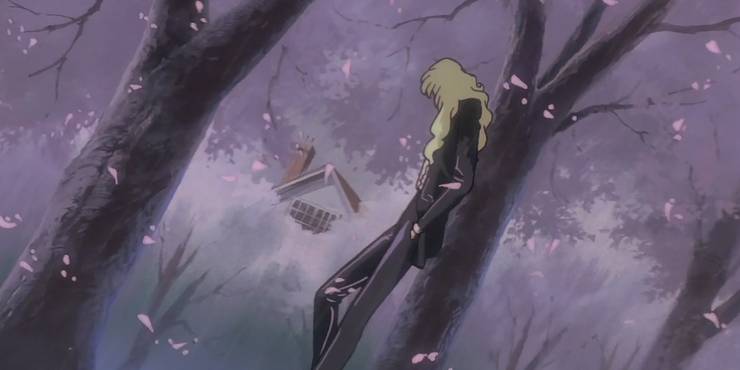
Dear Brother is emotionally vast and uncompromising in its ideas, and the limitations of anime production in the early 90s serve as an opportunity for conveyance as often as they are an obstacle. It has a uniquely European flair to its 70's shoujo style in the costuming, atmosphere, and screenwriting that has been updated to suit the 90s anime aesthetic, and its inspiration on many classics today means that (if you can acclimate to its traditional cell-shaded animation) this has the ability to appeal to old and new anime fans alike. I was not expecting anything spectacular visually, considering the release period and pacing of the production, but ended up being blown away by how vibrant and distinct it is.
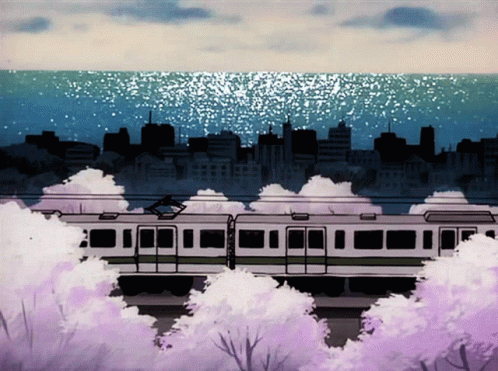
There are a lot of time-saving and efficiency-type techniques still used in TV anime today that this anime makes use of, things that series director and legend of the craft Osamu Dezaki had been polishing since the inception of TV anime itself. It's not always entirely successful, there are the classic jarring triple takes and side pans that can be disorienting or uncomfortable to watch, but there are also plenty of moments where its motion (or lack thereof) embellishes the emotional impact of the moment quite nicely. This is a premier example of limited resources being used effectively and with a clear creative vision in mind to support the directorial choices. It's cheesy and emotionally loaded at times, but you can immediately see how this series and its creators became such an inspiration to so many creatives.
Whether it be the flower imagery of Yamada and Ikuhara, the thematic gravitas and prophetic impetus of Satoshi Kon, Anno, or Ikuhara, the character archetypes, visual imagery, and social commentary of Miura or Ikuhara, the style and visual iconography of Shinbou or Ikuhara, the time-saving TV techniques used by Asaka or Ikuhara, or the uplifting minor-key swooning of Kajiura’s musical scoring as well as the theatrical musical palette that Ikuhara has become known for, Dear Brother’s influence can be felt across a wide berth of the anime industry today. Some of these are tangentially related, and others are direct references, but it is undeniable that mangaka Riyoko Ikeda and director Osamu Dezaki have greatly influenced anime as we know it today greatly… and Dear Brother is the lesser-known pinnacle of their works. (Did I mention that Ikuhara
ripped offwas heavily influenced by this series?)

Dear Brother is an intellectual Class-S melodrama permeating with the usual Takarazuka flair, using conventions within its genre to explore a seemingly routine coming-of-age narrative. It’s in this adherence to the routine of shoujo storytelling mechanics, that it wrestles with many of the insecurities young women face like the burdens of gender and sexuality, the competitive social hierarchy among women, the responsibilities of status/wealth/lineage, trauma/stress (and their coping mechanisms therein such as drug use and self-harm) and much more. It gives a distinct psychological hue to its swirling mysteries surrounding high school politics and young love, and it allows its moments of grandeur to flow through the characters, instead of using them like chess pieces on a board to concoct exciting story beats. There's a sense of tension with the show's polite airs that confide in the audience and promise respect for the struggles of its characters. It’s a lofty and emotionally wrought journey through early adolescence, exploring the various forms and expressions of love and life through the perspectives of its intensely flawed yet always enthralling cast of young women. The pain and tragedy come in equal parts to the joy and splendor.

Nanako, our 16-year-old protagonist, wanders emphatically through the lives of her fellow classmates; many of whom are tormented by their affections, wrestling with the “proper” ways to live and love by the standards of society set before them. She experiences lots of different types of love, not just the fluffy chauvinistic love, but all sorts, by various genders and presumed sexualities. Along the way, she uncovers the uncomfortable truth that there is no such thing. You can do everything “right” by the standards of society and still come up wrong. You can do everything “wrong” and still come up “right”. Following the rubric set out by patriarchal norms, and acting solely based on a societal role will not necessarily lead you to the storybook ending promised by chauvinism. And yet, as a mere teenager uncovering the messy throes of love, life, relationships, and your place in the world is a seemingly impossible but necessary reality of adolescence. Although the conclusions you discern about loving others will vary, and how society views you will be beyond your control to an extent, above all else you must love yourself and cherish the life you have been afforded. Happiness awaits those who struggle through their own hangups and inadequacies and is rewarded not based on merit or structure but on your own truly genuine beliefs and understanding of yourself.

The story uses the letters Nanako writes as a narrative convention, cutting away most of the inner-monologue chaff we’ve come to expect from anime drama series and replacing it with poetic bookends. Through Nanako’s interpretations of the maelstrom of events surrounding her, we are made privy to what it would be like to feel as the characters do… as young women on the cusp of adulthood do. It’s not made clear how much of a genuinely unreliable narrator she is, but her extrapolation of certain events and decisions made by herself and others adds a layer of uncertainty to the narrative. Dear Brother isn’t limited by its exposition, pacing, or structure, the way it might seem at first glance, and it manages to broaden the scope of the forms of love typical to its genres beyond the usual fare. In many ways, it is still somewhat dated by the standards of today's audience (the woe of compulsory heterosexuality looms as it does in most Class-S literature and manga) but for the era this was written, it is far more progressive in its ideology and expression than one would expect. The series acknowledges the existence of the disproportionate societal forces women experience as they ready themselves to move into adulthood and shows us how different people cope with or rally against these expectations. It takes some interesting stances on self-love, showing all sides of the equation. Loving yourself, loving others, and how balancing them equates to maturity.

Although it’s not uncommon for shoujo or even shounen series to base their thematic exploration on more grand societal concepts such as toppling power structures, developing a sense of justice, loss of innocence, or loving yourself before you can love others, Dear Brother adds a layer of nuance to the points of view it depicts that is handled deftly. Many of the show’s concepts are presented through simple metaphors, such as the sorority as a microcosm of feminine high society and unattainable standards of beauty, or the different family structures of each character as various forms of support systems and their varying levels of success. Its ideas are presented through simple metaphors so that younger readers/viewers can identify with them, but the complexity it provides with added subtext and visual metaphors allows these simple concepts to permeate deeply enough to remain engaging and thought-provoking for more mature audiences.

Each character represents different modes of navigating through society’s establishments and expectations, but they leave a degree of nuance and juxtaposition underneath that begs analysis at every turn. Nanako’s self-serving empathy, Fukiko’s enduring manufactured dignity, Rei’s self-hatred fueled by narcissism, Kaoru’s bravery as a shield for her fear of mortality, Mariko’s pride built upon her weaknesses, and Misaki’s vitriol as a result of her insecurity. Their respective points of view and experiences show us many of the ways that pain and trauma can change a person, and how it is through these types of hardships and worldviews that we can discover the things that remain the same; our true selves. Nanako tries to experience all of their viewpoints, trying each one on to see how it suits her. It’s through this and the events of the narrative that she realizes that being able to internalize your own feelings and sense of self, to be able to see yourself as others see you, and then coming to the understanding that everyone around you is also struggling in this way… that intersection of outer perspective and self-awareness is what true maturity is.

I kept asking myself as I worked my way through the series: How can this feel so genuine and real despite its over-the-top melodramatic conveyance? Why does this sit so much better emotionally than so many modern anime dramas? What sets this show apart from so many of the emotionally manipulative shoujo that came before or since? Despite how unseemly and over the top it is emotionally, Dear Brother is engaging and resonant. When I picture “melodrama” what springs to mind are soap opera telenovela-type pacing and depth, and the idea that you are watching the characters' lives from an objective perspective. If you want to get to the heart of a compelling portrayal of melodrama then you need to do away with believability and accept the presentational mode for what it is. Being performative and being genuine are not necessarily antithetical. Good melodrama considers how the characters feel, and bad melodrama considers how the audience feels.
Most modern anime drama series tend to follow more stringent guidelines, presenting things evenly across a large cast, levying the character perspective shifts, and keeping the flow of the scenes succinct and piecemeal. Dear Brother, on the other hand, thrusts you into how the character is feeling and what they are thinking first, cleaning up the narrative and character motivations later. It’s undeniably messy at times, but this comes from a willingness to linger on things emotionally. Modern anime can be almost too pitch-perfect, too on the nose, and too clean-cut sometimes, especially when it comes to melodrama or shoujo in general. The pacing of 1-cour adaptations demands it. The manga/LN they are adapting often put a lot of focus on narrative in the first 3 volumes to hook readers, which translates to breakneck-pace anime adaptations.
The problem with that for shoujo is that it needs time to linger, the characters have to ruminate on their feelings after acting. It helps that the establishing shots are beautiful, with amazing color usage and creative compositing that tie visual metaphors to the script, and also that the music integrates perfectly with those emphatic symphonic crashes or eerie minor interludes. The voice acting is also incredibly well done, down to the different types of language and layers of formality the characters use with each other. All of this adds a layer of something that feels genuine, even if it is ultimately manufactured. And feeling is what’s most important in a melodrama, and what is often forgotten in the curated and prim adaptations we see today.

Another large part of what makes it feel so real is that the show truly gives the characters time to wrestle with their actions and reactions and uses the over-verbalization/visualization techniques of melodrama, soap opera, and shoujo conventions to allow the characters their chance to justify and unpack their feelings. And as much as it gives the characters time to ruminate on their feelings/actions after the fact, it also takes great care in the setup before the dramatic climax of the scene.
The relationship between Nanako and Tomoko is a great way of juxtaposing normal life and relationships with the high society concocted by the sorority. Kaoru serving as a voice of reason in the student body shows the audience the manufactured nature of the sorority, giving its over-the-top atmosphere nuance. Rei’s self-destructive descent feels entirely believable, even as it wallows in elongated and moody establishing scenes. Fukiko’s interactions with sorority members are couched in faux importance, conveying the complexity of their relationships with what amounts to simple trials by tea party. Scenes like this go a long way to making the characters feel like they are living in a real-world… just in a heightened state.

Throughout every episode, they make sure to include moments of normalcy and establish a baseline for day-to-day life. Whether it be Nanako putting on makeup, Kaoru shooting hoops, or Fukiko trimming her roses, these small moments of daily life are usually couched in visual symbolism and layers of subtext. Whereas lesser shows often jump into comedy routines, linger on inner monologues, or don’t even give you a break from the drama, Dear Brother takes the time to show you that these are ordinary people before thrusting them into precarious situations, pacing the story slowly and simply. This way we get to see the characters struggle and make unexpected decisions that propel the narrative forward. It’s much less important in a good melodrama to understand why a character does the things they do at the moment than you would think. But modern viewers tend to be unreasonably focused on “relatability” in their characters, rather than allowing the characters to be ambiguous. Ironically, trying to manufacture relatability makes the characters in melodrama feel less real. Moments of "under-presenting" stand out against the wash of high-tension scripting and characterization. Dear Brother balances this scale deftly, and the intangible truths it reaches because of its commitment to the melodrama style is what allows it to function so well.

While there is undeniably a barrier to entry for Dear Brother due to its presentation distinct from most anime today, the literary aspects and the artistry in its visual storytelling, more than make up for what it lacks in age, animation, or succinct pacing. This is a near-masterpiece of an anime, marred only by its somewhat dated
compulsoryconclusion arc and the niche nature of its mode of expression as a shoujo melodrama. I can’t recommend this to just anyone, but I can say with certainty that its audience is far broader than I gave it credit for at first, and the resonant nature of its themes and personality have and will far outlast most other anime of its kind.That's all! Thanks for reading. If you scrolled all the way to the bottom to look at my score first shame on you, but feel free to jam that thumbs up/down anyway. If you're wondering why my score isn't higher it's because I'm cis-het and I have bad taste. If you're wondering why my score isn't lower it's because you also have bad taste. If you want to get a short and sweet taste for the show to see if it might be something you'd enjoy check out this AMV. I think it does a great job of presenting what the show has to offer and it'll save you the time of reading my ramblings.

SpiritChaser
100/100Though sometimes dark, the anime carries self-healing messages.Continue on AniListWith Dear Brother, it took the story of Nanako, and the uncontrollable fate she had to force herself to grow through. In typical Dezaki fashion in relation to his previous anime that I have watched, The story gets more dramatic and emotional towards the end-until the bittersweet finale-getting better and more impactful towards the viewer as the emotions grow.
But the story isn't just drama how some say. Dear Brother taught me about stopping myself from treating myself like dirt. To find the good in myself and appreciate it; to learn about the beauty of love and how it isn't perfect; that suffering is a part of it, and that this is a harsh realistic part of it that shouldn't make us give up. That love is a wonderful thing despite this.
I started to notice something I've seen in just about every Dezaki anime I've watched so far. It's a big focus on redemption. Characters who you think would not mean well are written well enough that they turn themselves around and become good people.
I think Dezaki may had found an importance in telling these kinds of stories.
At first, it sounded wonderful. Nanako, who felt life had been plain, felt the joy of being able to experience a brand new stage in life with entering the prestigious school. She was unaware that she'd get caught in the middle a huge spectacle involving the rest of the main cast. Not only that, she was separated from her so called brother who she had been writing letters to. Nanako did have her childhood friend Tomoko, who is the bright and shining, optimistic star of joy of the series from among the darkness, though Nanako is a very closed off person.
She doesn't vent to tomoko or tells anyone about her personal problems. The letters she writes to her brother who she was separated with are the majority of the times she is willing to open up about how she really feels, though even that has limits. As her problems continue on, it feels like she doesn't have anyone to turn to at times because of this attitude she has towards all this. An innocent and submissive girl, she does manage to toughen up and grow, as she is forced to. She begins to rebel against her former ideals, all while picking up her new friend's characteristics like a chameleon.
Rei appears as a troubled youth dealing with addiction, living under terrible housing conditions. Constantly ditching, her self-destructive lifestyle still leads towards one of being popular, as she captivates the students with her great piano playing and acting, as well as her cool and rebellious attitude. However, she is always escaping and running away with her drugs as she lives this sedated, drunken and pathetic state that frustrated and worried the characters. I don't do drugs, but I found myself horrified to find myself relatable to Rei the most because of my own alcohol addiction.
In trying to understand Mariko, I tried to understand where she was coming from. She became an example to me about how false the idea of money bringing happiness can be. She has all the money in the world, lives in a huge, luxurious house, and could have any material possession she desires. And that has an interesting relation towards her issue. Material possessions don't mean anything meaningful to me, personally.
As a result, she is unhappy because she is lonely. All the riches in the world can't do for her what a good friend can do. This leads her to desperately cling to Nanako to the point of obsession. She felt that Nanako belonged to her, and only her, to the extent she conspired against Tomoko to break up their friendship.
But I praise Tomoko. Because she is a very understanding friend. Even when it looks like her and Nanako may be drifting apart, she also tries to be understanding. And it hurts. It hurts to see Nanako become vulnerable and break down as she pleads for Tomoko to come back into her life. Because their bond is a deep bond, Tomoko still tries to understand where Nanako is coming from. And this is important.
Like love, friendship isn't perfect. We all butt heads with our friends. This is natural, and should happen, unless there is a lack of communication about the problems one has with another. A friendship or romance too perfect is suspicious. I think that it matters more that two people can talk and reason their way out of problems to remain friends for another day, than to be so worried about everything being so perfect.
What I did find admirable about Mariko is that she, despite her flaws, is also a great example of someone who stands up for her friends and who wants to best for them. She is also not someone you would want to mess with, as her unstable emotions can result in violent outbursts when pushed into a corner. She can try to tolerate someone, but when pushed into a corner too far, she'll strike back like a panther. Her biased views on men can be amusing to see play out and how ridiculous it can get, and the comedy can play into irony by making her the end of the joke. Still, I came to feel that her overprotectiveness of Nanako came to me out of sincerity and a genuine care for her.
The story continues to try to break her with family issues, and sometimes it can feel like it is too much for her, but Mariko to me is a character about overcoming and showing what it means to be a true friend.
Miya is an interesting character considering where she goes after love broke her and tore her apart. It turned her into a monster. Still, after having lost everything, she came to see things more clearly. They say only when it's darkest can you see the stars. Her own analysis and realizations of what true love is to her becomes a central part of the message of the entire anime. that though the broken promise hurt, and she was emotionally left behind, Miya understood that love can be a vessel for every emotion. She became a realist towards her rejected feelings; that she can love again, even if it is not the same person.
This sounds simple, but not easy to do. Some people are too afraid to let go. In my last failure of a relationship, I tried really hard to believe that everything would work out if we both worked hard enough. Everyone was telling me to get out of it, but I refused. Ultimately, I came to the realization that some people will never change, and for the sake of my own mental health and wellbeing, had to get out of it, and I did.
Some people give up completely, but stay together in horrible relationships because they are too scared of the thought of being alone. They make themselves believe that they will never find anyone else again. It made me glad to see that Miya let go of the pain she held for so long, and came to understand a better idea of what true love can be about.
Dear Brother also fascinated me in that it makes incredible use of its side characters. One particular moment that is among the best involves the broken relationship between Nanako's Brother and her father. You can feel the tension when they meet after being apart for so many years. A conflicted pain that yes, this is my father, but he hurt me. A conflicting pain that yes, this is my son, but can he forgive me for what I did? You can feel that deep down, they want to be like family again.
Scenes like this about a father and son especially break me because I do not get along with my own father. His own father was violent, and lost lottery money because he spent it too irresponsibly. This trauma made my father be like an emotionally violent version of his own. At this point, I've given up. We are never going to get along. I tried, but unfortunately, my own father is also that type of person that will unfortunately never change. As a result, I keep him at a distance, as there is no helping it. But I too can feel deep down, this tension, that he wanted to love me, but did not have the ability to do it.
What appeals so much about Dezaki and anime like Dear Brother to me? Dezaki revealed in an interview that a big focus of his message is to be anti-authoritarian. It makes more sense now. As someone who studied a lot of politics, and who came to dance and frolic with the political messages of Tomino's Gundam I now understand. Whether it's Joe, Oscar, Nanako, Gerda, Mariko, Rei, I came to realize... Uso, Laura, Camille, Judau, Amuro, Cosmo. There's a connection... There is a spiritual, anti-authoritarian, and political connection between these two men and why I love their works. They align with what I look for. This is my taste. And this is why Dezaki and Tomino are my favorite people in anime.
Nanako was like a ball of clay, shaped and molded by the cast one by one, and it shows when she stops saying sorry. When she stops being so apologetic. We associate bad things as only bad too much when they can bring clarity, inspiration, and growth. These characters have something to say about standing up and being independent.
The spell Rei was under was spell so beautiful to see broken. That people can change and better themselves, The meaning of Rei's full fridge means so much to me. But something was stolen from me. It was too good to be true. That fate can steal a victory someone fought so hard to overcome. It not fair, but we shouldn't give up. A life worth living and struggling for is one where you have to be prepared for anything while enjoying the thrill. That way, when you fall, you fall forward with a smile.
I appreciate that Kaoru lived so passionately and intensely despite her illness. I long life does not matter as much... as the quality of the time spent.
I appreciate that Mariko lost, but did not lose the lesson. This is important. She learned to grow and move on from the blindness of her wealth and obsessions that were eating her away.
I was immersed in Dear Brother, or was it escapism?
I was moved by Rei's growth and how much I related to her, but where is my growth?
A beautiful world of striking designs and art.
Enriched... by a bittersweet score.
Complex characters intertwined in a web of violence and confusion.
It all ties together so wonderfully.
And with background art that comes to life.
I enjoyed this 10/10
And with that, I say goodbye.(Feel free to check out the AMV video essay version I made for this. It's on my profile.)
SIMILAR ANIMES YOU MAY LIKE
 ANIME DramaAce wo Nerae!
ANIME DramaAce wo Nerae! ANIME AdventureVersailles no Bara
ANIME AdventureVersailles no Bara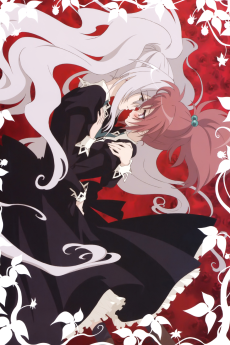 ANIME DramaStrawberry Panic
ANIME DramaStrawberry Panic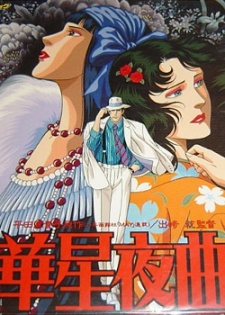 OVA DramaKasei Yakyoku
OVA DramaKasei Yakyoku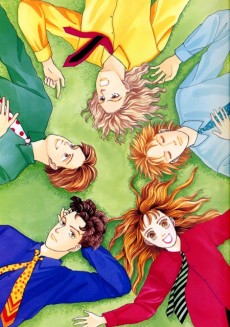 ANIME ComedyHana Yori Dango
ANIME ComedyHana Yori Dango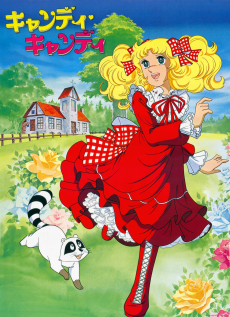 ANIME DramaCandy Candy
ANIME DramaCandy Candy ANIME DramaMawaru Penguindrum
ANIME DramaMawaru Penguindrum ANIME DramaYuri Kuma Arashi
ANIME DramaYuri Kuma Arashi
SCORE
- (3.9/5)
MORE INFO
Ended inMay 31, 1992
Main Studio Tezuka Productions
Trending Level 1
Favorited by 868 Users

